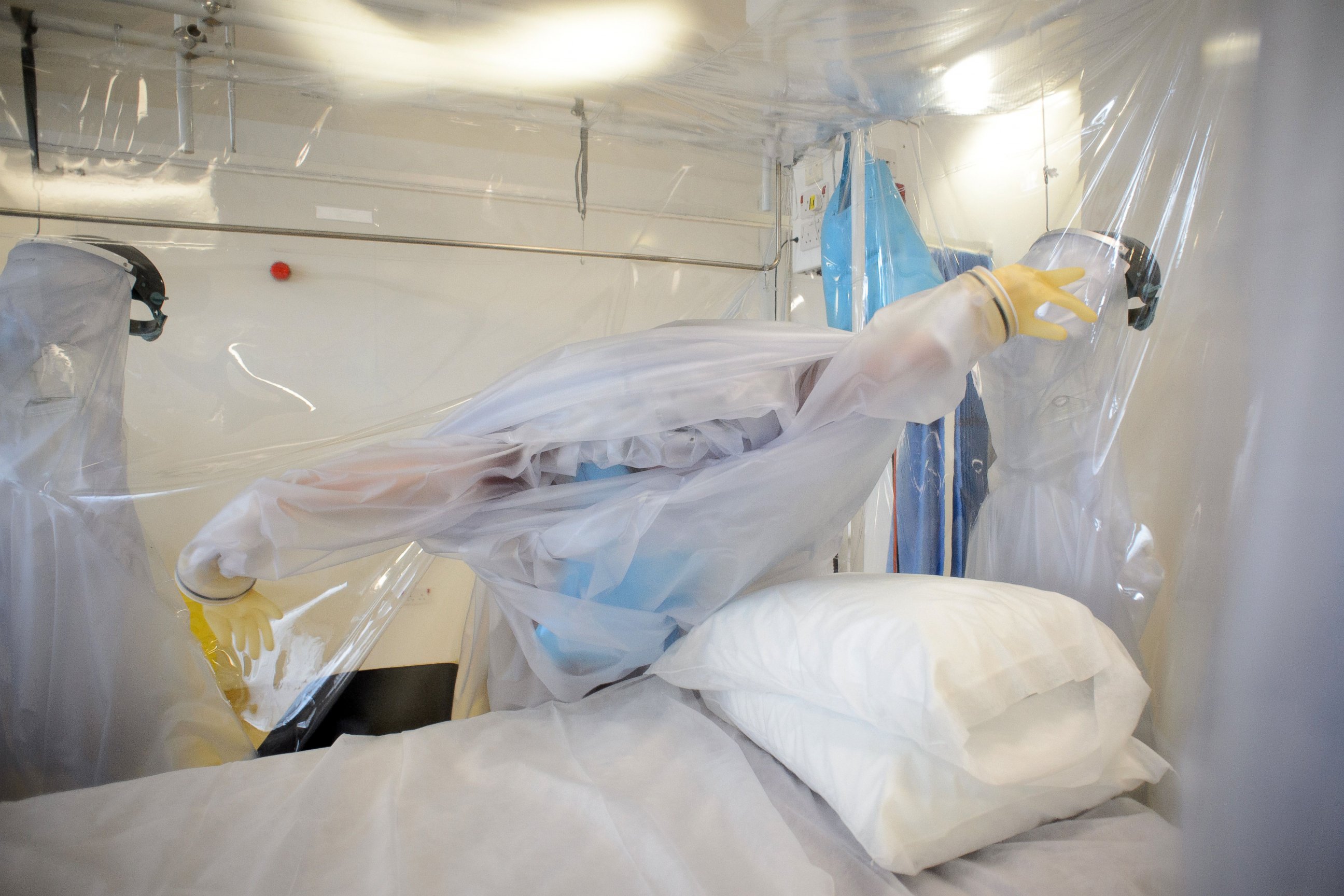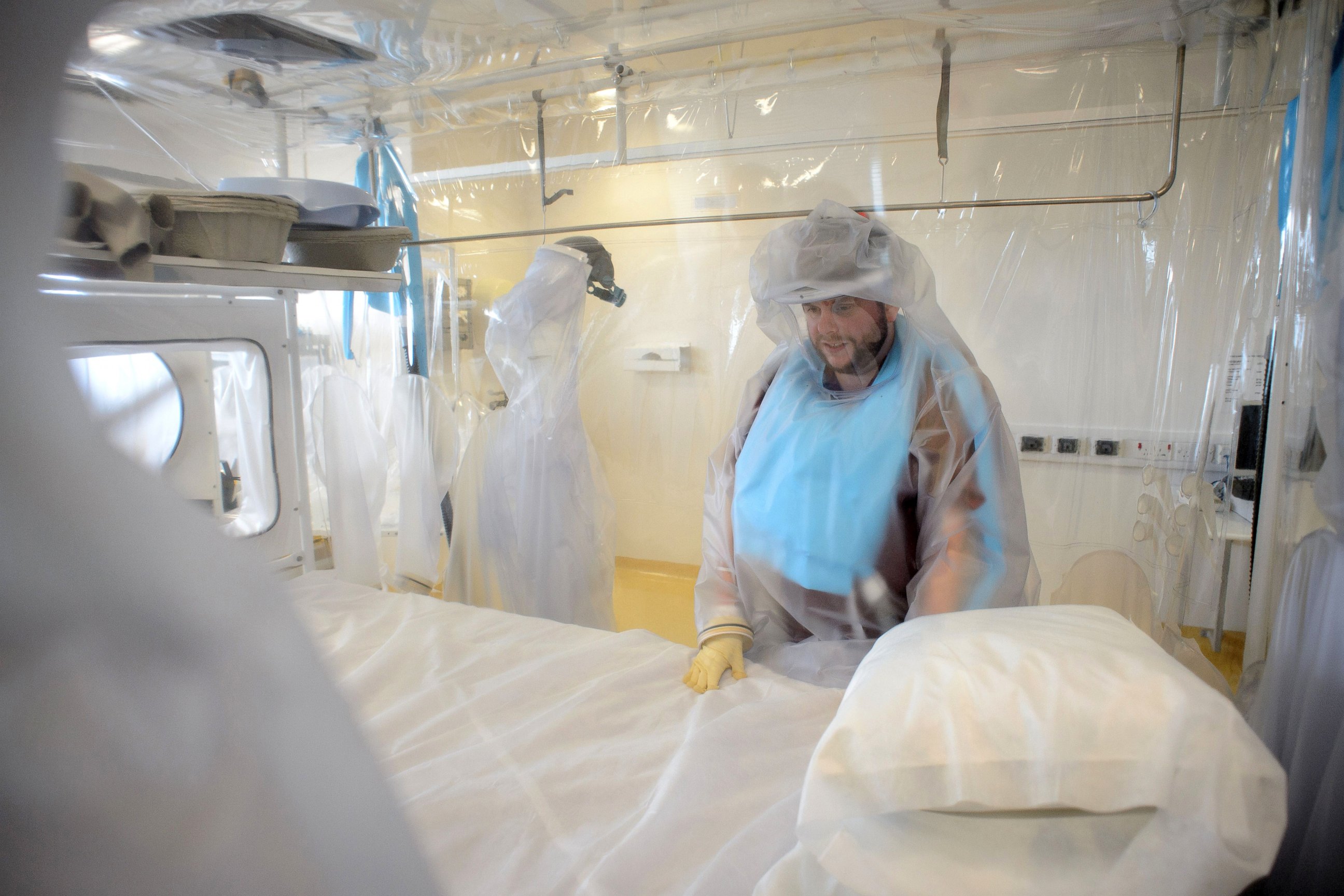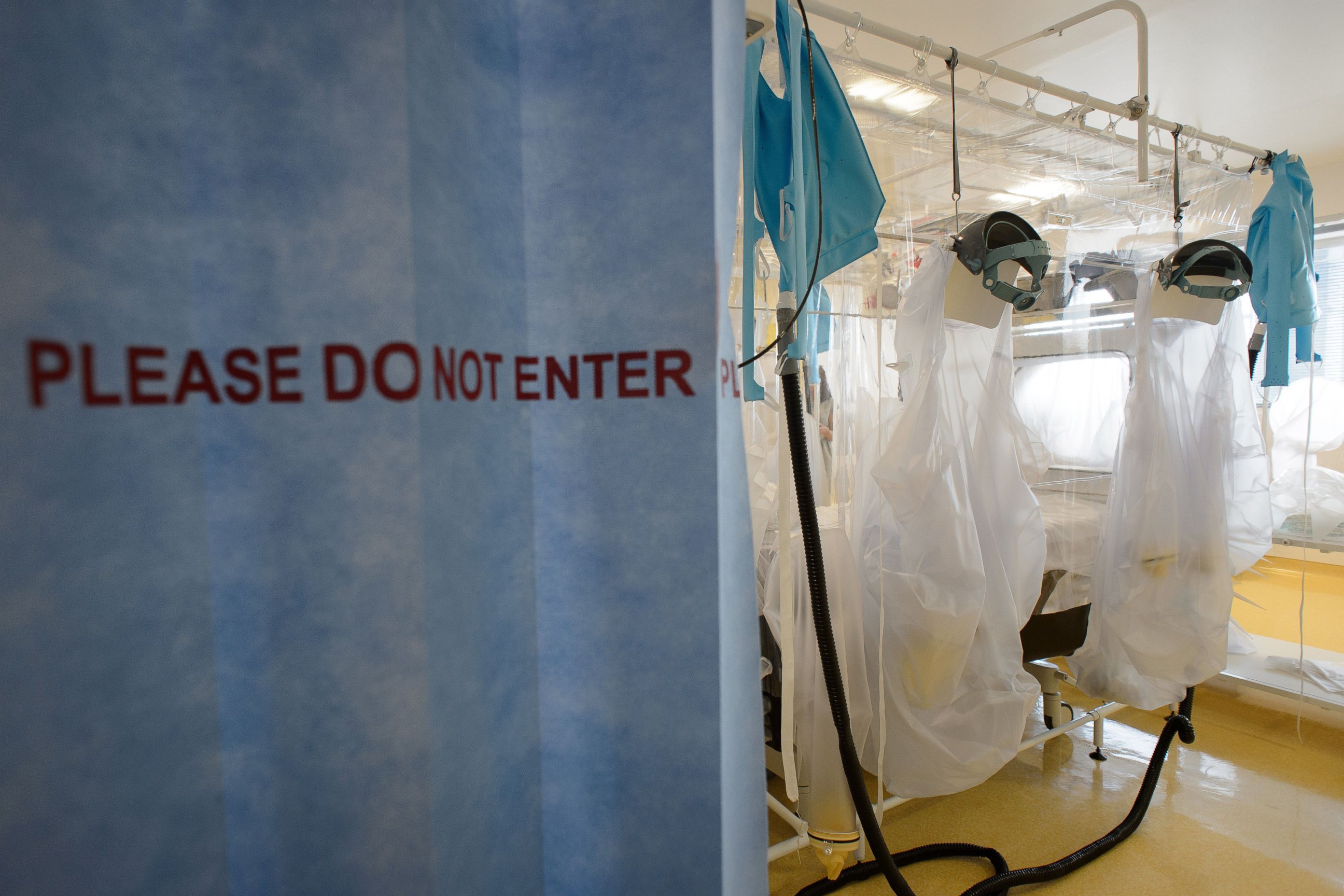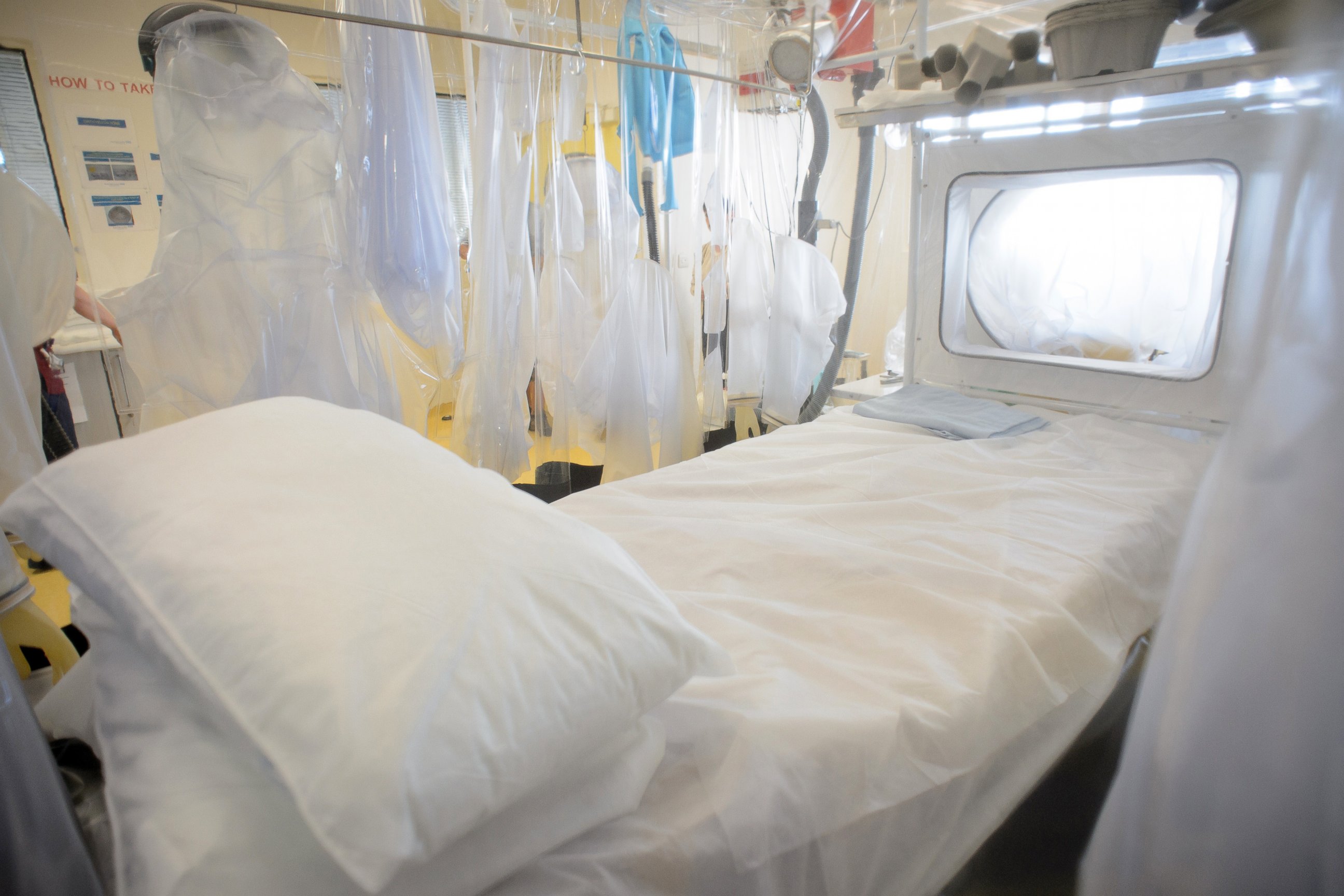See the Special Ward Designed to Treat Ebola Patients
Deadly disease has infected more than 1,700 since March.
— -- With the deadly Ebola outbreak continuing to ravage west Africa, medical officials across the globe are ramping up containment and treatment plans in case the virus arrives in local emergency rooms.
The virus has killed at least 932 mainly in Guinea, Sierra Leone and Liberia.
In Nigeria one nurse died after becoming infected by a passenger with Ebola, who flew in from Liberia. Although the virus has not been confirmed outside of Africa in this outbreak, a man in Saudi Arabia was tested after showing signs of hemorrhagic fever following a trip to Sierra Leone.
Stories From the Front Lines of the Ebola Epidemic
How Did U.S. Ebola Patients Get Experimental Drug?
In the U.S. two American aid workers were evacuated from Liberia to Emory University hospital, where they are being treated in a specialized ward. In the U.K. the Royal Free Hospital in London is prepping their specialized unit that would handle any patient infected with the disease.

Because the virus is spread through bodily secretions, such as blood or urine, doctors and other medical personnel would have head-to-toe protective gear. The disease is not airborne and only spread through close bodily contact or contaminated surfaces.
Health workers are some of the most at risk population because they treat the sickest patients, when their viral load is the highest.

According to the WHO, 145 health workers have been infected and 80 have died.
The isolated beds are not only for Ebola but can be used to house patients with any contagious disease, including other airborne pathogens like the avian flu.

According to the Express, the unit will even filter the air to protect against any dangerous pathogen escaping. There are two units, fitting one bed each.
“Everything is contained within the tent under negative pressure so the air is constantly added and removed,” Dr. Stephen Mepham, of Royal Free Hospital, told the Express. “Outside the tent, the air flows through a series of filters and is deposited outside the hospital.”

While the Ebola outbreak is the deadliest on record, health officials cautioned the scared public from over reacting. Mepham said the chances of meeting an undiagnosed Ebola patient in Britain were nearly impossible.




